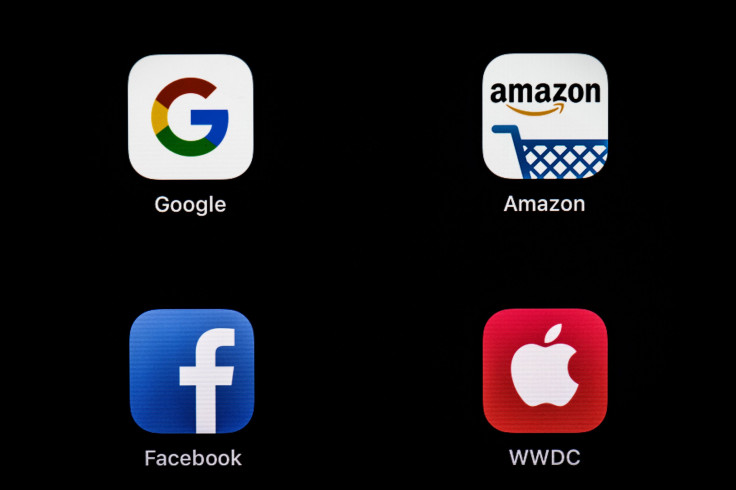Amazon's Coming After Google With Its Latest Acquisition

Amazon's (NASDAQ:AMZN) advertising business just got a boost with the acquisition of Sizmek's ad server. Sizmek filed for bankruptcy at the end of March and sold part of its business to Zeta Capital in April. Amazon's acquiring the rest of the business's ad technology for $30 million, according to paperwork filed this week in the U.S. Bankruptcy Court in New York.
Sizmek's biggest competition in the ad server technology space is Google, the Alphabet (NASDAQ:GOOG) (NASDAQ:GOOGL) subsidiary, which offers Google Marketing Platform as part of the suite of tools for marketers that want to advertise on Google and its partners' websites and apps.
An ad server, as the name suggests, helps serve certain ads to certain publishers' websites or apps. It has a complete view of a marketer's ad campaigns across the entire World Wide Web. Sizmek's ad server could give advertisers a clearer picture of how their Amazon ads compare to the rest of their ad campaigns on competing platforms like Google or Facebook (NASDAQ:FB).
Giving advertisers what they want
One of the most important aspects of digital advertising is being able to measure the results of an ad campaign. Amazon's ability to attribute ad impressions to sales is very good, considering the vast majority of its ads are for products sold on its marketplace. It's fairly straightforward for Amazon to track a consumer from first seeing an ad to the final sale.
Still, marketers may be wary of Amazon's self-reporting. Both Google and Facebook have faced similar objections and bolstered their ad technology as well as their partnerships with third-party measurement tools in response.
Sizmek's ad server could provide more transparency into how Amazon ad campaigns stack up against campaigns on other platforms. Sizmek could provide ad impression data from across the web that can be matched against sales on Amazon's marketplace. Since Amazon accounts for about half of all e-commerce sales in the U.S., that would provide a pretty good indication of which ad campaigns are truly driving product sales. That could help win over new advertisers that were hesitant to buy ads on Amazon before.
Providing better measurement capabilities will enable those advertisers seeing success with Amazon ads to optimize their campaigns and increase their budgets on the platform. Those that were reluctant to try out Amazon ads might start experimenting. As a result, Amazon's average ad price could climb higher.
Not a slam dunk
It's important to remember Amazon is trying to win over customers from Google. And in case you haven't heard, Google is kind of a big deal in the digital advertising space. The company will take in 37.2% of all digital ad spend in the United States this year, according to an estimate from eMarketer. Amazon sits at a distant third place behind Facebook with an estimated 8.8% market share this year.
While it's certainly possible for advertisers to use Sizmek to serve ads on Google's ad platform, Google's ad server is at the heart of its ad technology. That makes Sizmek a tough sell for Amazon, which commands significantly smaller share of budgets from digital advertisers. If the biggest portion of a marketer's budget goes toward Google ads, it makes the most sense to use Google Marketing Platform.
Even Facebook ran into issues when it acquired Atlas, an ad server similar to Sizmek's, about six years ago. It tried to go head-to-head with Google, and it failed to attract advertisers to its platform despite its deeper integration with Facebook's extremely popular ad platform. Facebook eventually shuttered the ad server and Atlas is now merely used as a measurement tool.
The odds of Amazon winning over marketers from Google Marketing Platform are a bit of a long shot. That said, Amazon's picking up Sizmek's assets on the cheap after its bankruptcy, and it's getting a good amount of ad-tech engineering talent along with it. That makes it a bet worth making for Amazon, and it should, at the very least, help the company develop better measurement capabilities to appease current and would-be advertisers on its platform.
This article originally appeared in The Motley Fool.
John Mackey, CEO of Whole Foods Market, an Amazon subsidiary, is a member of The Motley Fool's board of directors. Suzanne Frey, an executive at Alphabet, is a member of The Motley Fool's board of directors. Randi Zuckerberg, a former director of market development and spokeswoman for Facebook and sister to its CEO, Mark Zuckerberg, is a member of The Motley Fool's board of directors. Adam Levy owns shares of Alphabet (C shares), Amazon, and Facebook. The Motley Fool owns shares of and recommends Alphabet (A shares), Alphabet (C shares), Amazon, and Facebook. The Motley Fool has a disclosure policy.




















